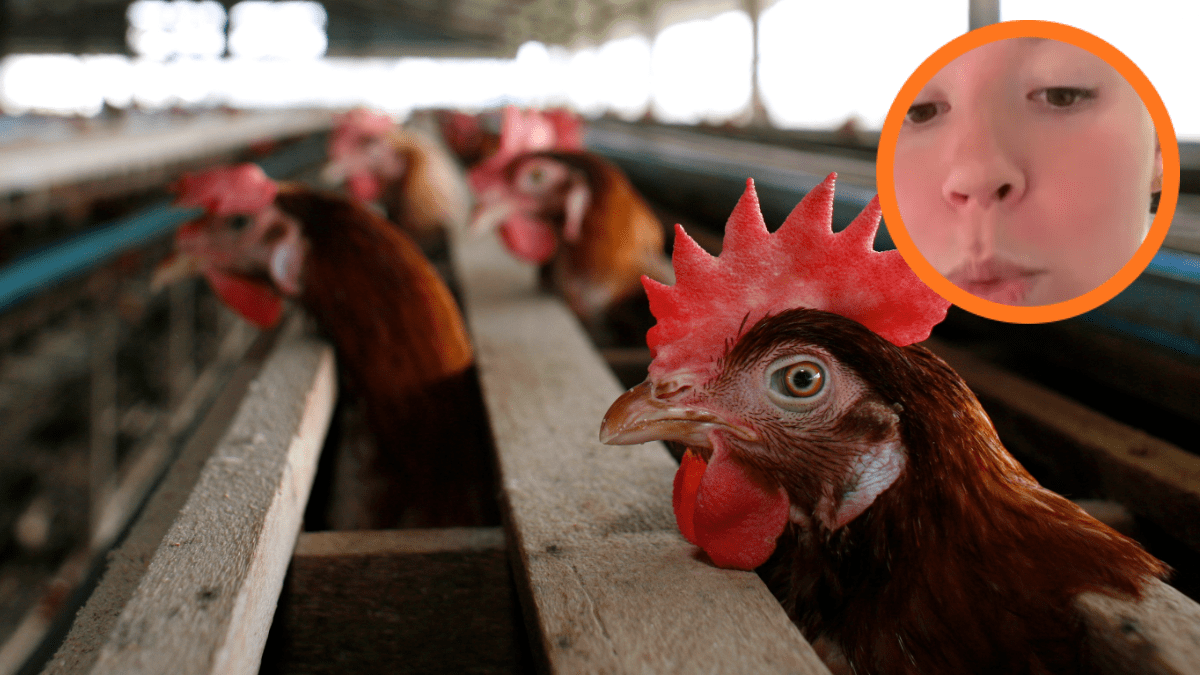The overwhelming urge to touch that thing controls at least half of the population, who spend their lives willy-nilly putting their hands on any range of potentially dangerous (or at least gross) animals and objects.
But mostly animals. My wife is just such a person, which has led to a real uptick in reptiles, random animals (we’ve played host to injured squirrels and no small number of strays) and strange interactions in my life. It’s not necessarily a negative thing, but it does come with side effects.
Like the one suffered by TikTok user Marie (@marie_werner), whose animal-loving escapades recently educated her on the fickle nature of llamas. Or alpacas, more specifically, after the content creator tried her hand at animal husbandry.
A brief but informative video shows one of the most likely results of petting any unfamiliar lamoid, as the creature turns to examine its strange new companion, and greets our good Maria with a thoroughly disgusting spray of saliva, gastric juice, and regurgitated grass.
Llama spit is an extremely unpleasant substance to be confronted with, which is likely why Maria’s video ends immediately after. She also almost certainly learned a lesson in sneaking up on lamoids, and the consequences of giving them a fright.
I grew up on a ranch with llamas, so I have a unique view into videos like Marias, since I, too, have been the unfortunate victim of a llama saliva attack. It’s not common at all for llamas to spit at humans — despite the notion that it happens quite frequently — but when it does happen, it’s certainly memorable.
Most llamas will only spit in a human’s direction if they’re feeling defensive — say if they feel threatened — or if that human is unfortunate enough to get in the way of a negative lamoid interaction. They spit far more frequently at one another, over things like personal space, a breeding partner, or to establish their position in the social hierarchy, and if you get in their way, that’s not really their concern.
Which isn’t to say that llamas (or alpacas) just spit whenever they’re feeling cranky. It’s actually a distinctly unpleasant experience for a llama to spit, since contained within that projectile is usually quite a bit of stomach acid (and general stomach contents). It tastes disgusting, smells disgusting, and it leaves them searching for any way to clear out their mouths.
Certain breeds of llama are also far more likely to deliver a spit, and it’s actually quite rare from the typically tame and cuddly alpaca. Far more common spitters are traditional llamas and their offshoots, many of which are far less friendly toward strangers.
Don’t let that convince you away from a trip to meet the fuzzy beasts, however. They very rarely spit at humans — I only ever caught a faceful when I interrupted a fight between two males — and when they do, it’s extremely unlikely that it will be the impressive, acidic spray that can reach a dozen feet away. That’s reserved for others of their own kind, and only in tense situations.
In all other scenarios, llamas (and particularly alpaca) are very sweet, goofy creatures that have been compared to the dogs and cats of ranch life. They’re snuggly, friendly, and excellent protectors for smaller wildlife — just don’t startle them, or risk a far less pleasant interaction.











Published: Jan 4, 2025 09:24 am